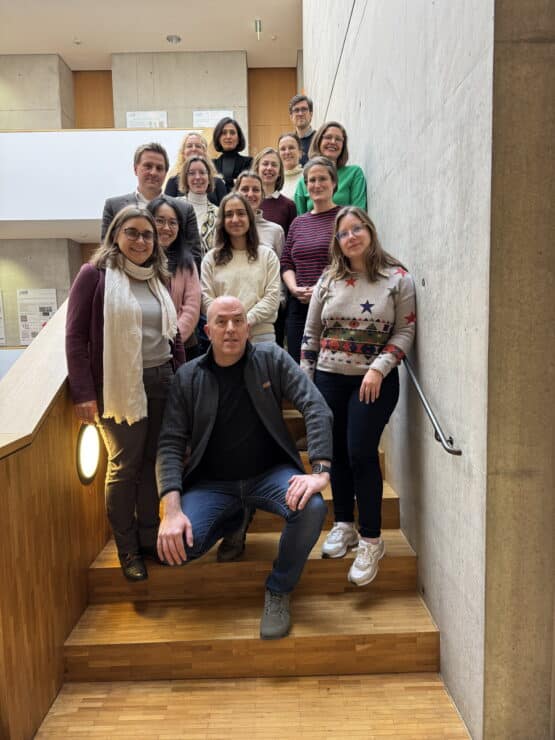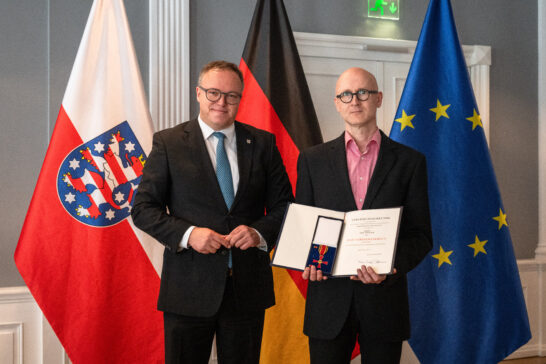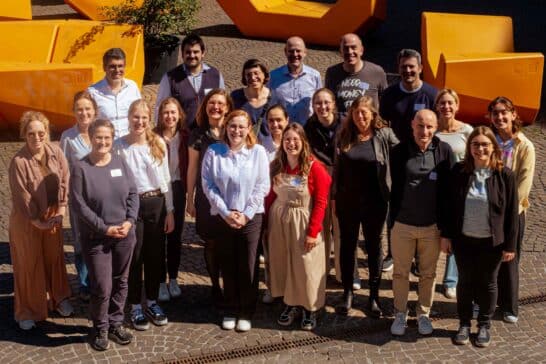On January 20, the core scientific team of PCH2cure met with scientists and physicians from Tübingen, Freiburg and Karlsruhe at the Karlsruhe Institute of Technology (KIT) to discuss new projects and set goals for the year 2025. The meeting was an important opportunity to share recent findings, identify challenges and initiate future research projects.
Unrest as a Central PCH2 Topic
Managing episodes of restlessness in PCH2 children was a main focus of the meeting. They are a stressful experience for the children and their families. Last summer, the topic was discussed during the parent-expert dialog onboard Cruise4Life, and was added as a new research topic by the clinical team. The participants at KIT discussed new methods for measuring and treating these episodes. A study on the topic is currently being planned.
Presenting Current Research
PD Dr. Wibke Janzarik presented her latest research, which investigates how PCH2 is associated with gastrointestinal symptoms. In addition, Prof. Dr. Samuel Gröschel presented the latest results from brain image analysis and Prof. Dr. Simone Mayer presented current progress in genetic analysis.
Time for a Valuable Personal Exchange
Beyond the scientific discussions, a shared lunch provided the opportunity for an exchange between scientists, junior researchers and parent representatives. The researchers and doctors showed great interest in the parents’ personal stories of dealing with the disease as they can provide important insights for future research approaches.
The PCH2cure Team is Growing
The meeting at KIT resulted in numerous new projects and collaborations being launched. In addition, Dr. Andrea Bevot, Dr. Cristine Ohki and Dr. Zarifa Mamedova joined the team as new scientific experts. While Dr. Bevot and Dr. Ohki will continue to pursue research on PCH2, Dr. Mamedova will contribute her experience in science management and communication to support the initiative on its successful path, supported by the Chan Zuckerberg Initiative and the Eva Luise and Horst Köhler Foundation.
Finding a Therapy for PCH2 by 2030
This meeting was another impressive example of the benefits of a face-to-face meeting between all those involved in PCH2cure. Thanks to their dedication and willingness to collaborate, there is hope that our ambitious goal will be achieved: a therapy for the rare disease PCH2 by 2030.


